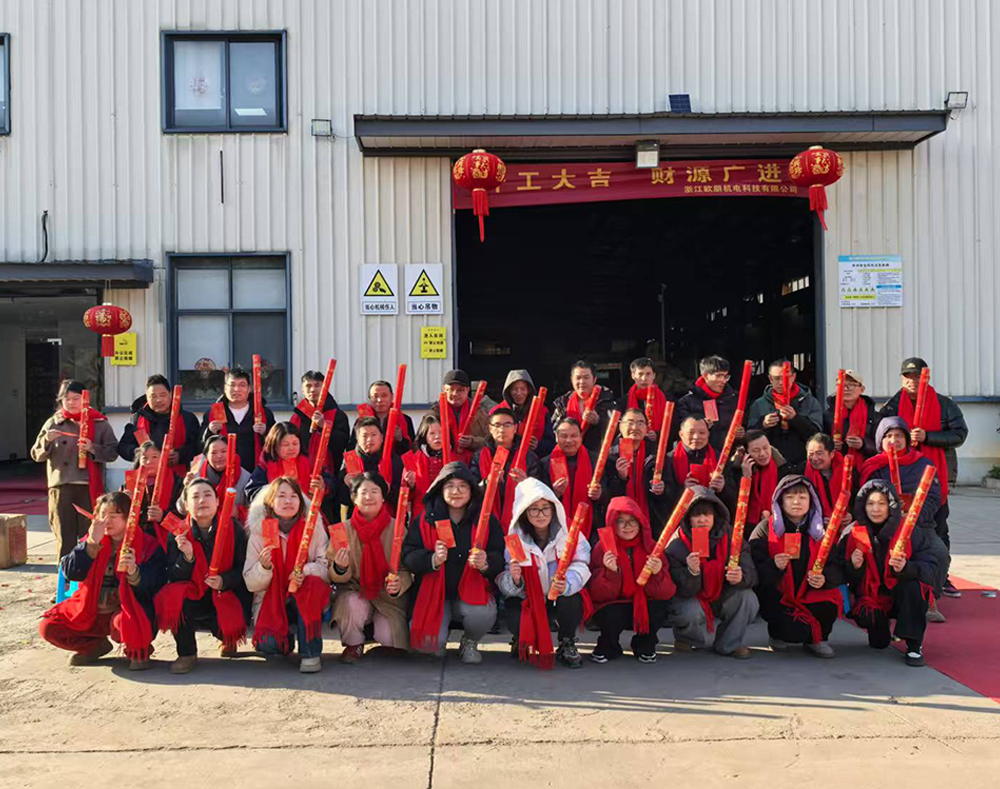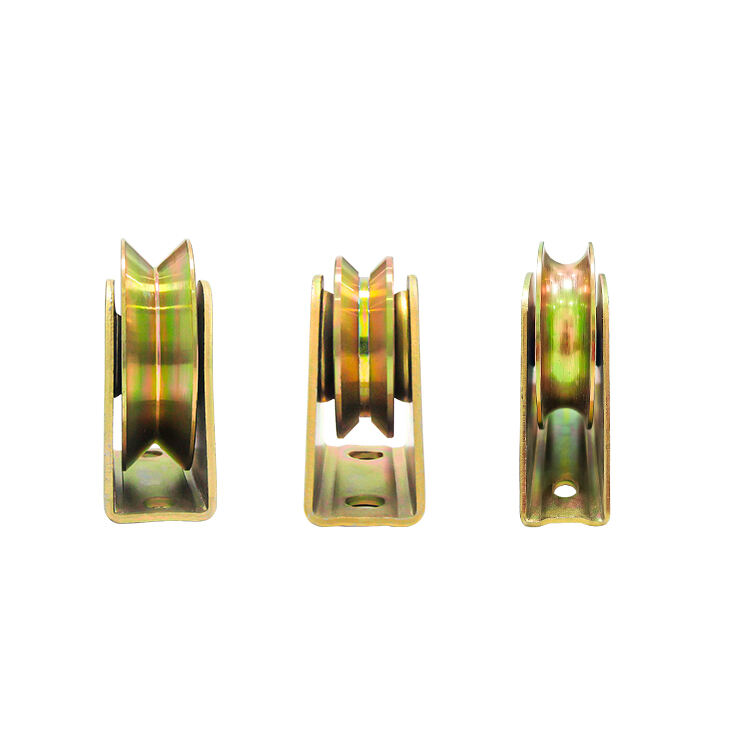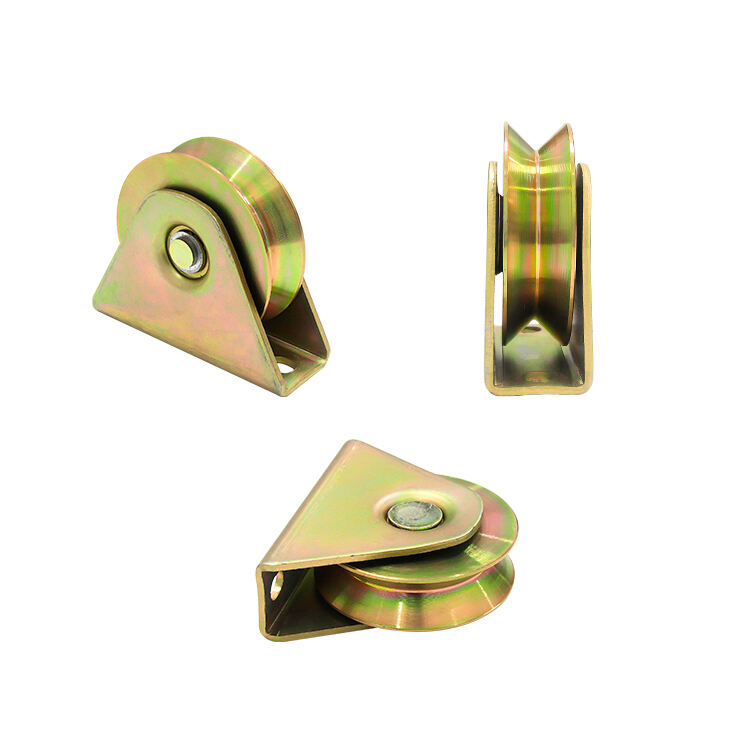Core Functions and Importance of Industrial Rollers
Role in Material Handling and Machinery Support
Industrial rollers form the backbone of most material handling systems, allowing goods to move smoothly through production lines and between machines. These components reduce friction points throughout the system, which helps protect both equipment surfaces and transported items from premature damage caused by constant rubbing or grinding. When selecting and maintaining roller systems, companies need to consider how their choices directly impact overall logistics performance. Poor quality or neglected rollers can spell trouble down the line, resulting in unplanned machine stoppages that disrupt workflow and rack up repair costs over time. A well-maintained roller network keeps operations running consistently while avoiding those expensive breakdowns that throw entire production schedules off track.
Impact of Precision on Production Efficiency
How accurately industrial rollers are made makes all the difference for how well production lines run and what kind of products come out at the end. When rollers are manufactured with high precision, they keep materials properly aligned throughout processing, which cuts down on breakdowns and keeps machines running longer between stops. Recent improvements in roller manufacturing tech have really transformed ongoing production work, making things move along much smoother than before. Better precision means factories can produce more goods without compromising on quality standards, and this generally leads to better bottom line results across most manufacturing facilities.
Cost Implications of Roller Durability
Putting money into good quality industrial rollers actually pays off big time down the road. When companies go for durable options, they end up replacing them less often and spend way less on maintenance stuff. Some studies show businesses that invest in better equipment simply break things down less frequently. Take it from experience, knowing how these rollers hold up over time matters when picking what works best for the budget. Look at materials and how they wear out before buying, because getting this right means saving cash while keeping operations running smoothly for years without constant headaches.
Comparing Key Types of Industrial Rollers
Drive Rollers: Power Transmission in Heavy-Duty Systems
Drive rollers are essential components when it comes to transferring power through heavy duty systems like those found on conveyor belts in manufacturing plants. They help keep things running smoothly by maintaining steady power delivery even when conditions get tough in factories or warehouses. What makes these rollers work so well depends largely on what they're made from and how they're built since they need to handle tons of weight day after day without breaking down. Companies looking at their long term operational costs often find that investing in better quality drive rollers pays off over time because cheaper alternatives tend to wear out faster under constant strain from industrial operations.
Guide Rollers: Directional Control for Sliding Gate Motors
Guide rollers play a big role in keeping sliding gate motors running smoothly while giving that necessary directional control we all need. When aligned properly, these little components actually cut down on wear and tear for both the gate itself and the motor underneath, which means they last longer before needing replacement. Getting them installed correctly matters a lot too because poor setup leads to all sorts of problems down the road. Many homeowners find that spending extra time during installation pays off handsomely later when their gates continue working without constant repairs or unexpected breakdowns.
Conveyor Rollers: Backbone of Automated Material Transport
Conveyor rollers form the foundation for moving materials around in automated systems, especially important in warehouses and distribution centers. These rollers help move products along assembly lines and between storage areas without much human intervention, which saves time and money. Manufacturers offer all sorts of roller designs and sizes depending on what kind of items need transporting. Some handle heavy machinery parts while others work better with lighter packages. This variety means factories can adapt their conveyor setups to match specific production requirements rather than forcing everything into one size fits all solution.
Cantilever Sliding Gate Rollers: Stability for Large-Scale Gates
Cantilever sliding gate rollers give those big sliding gates the stability they really need to keep perimeters secure. Commercial properties often rely on them because when dealing with massive, heavy gates that must slide open and closed all day long, things get complicated fast. Think about it - try opening a 20 foot wide gate in strong winds or after a truck has just driven through. That's where good quality rollers make all the difference. What goes into making these rollers matters quite a bit too. Stainless steel versus regular steel, how thick the components are, even the way they're assembled can affect how long they last and whether they'll hold up against daily wear and tear.
Critical Features Affecting Roller Performance
Material Composition: Polyurethane vs. Steel vs. Nylon
Material selection for industrial roller design makes all the difference when it comes to how well they perform and what kind of jobs they can handle. Three main options stand out: polyurethane, steel, and nylon, each bringing something different to the table depending on what the application demands. Polyurethane gets a lot of praise because it bounces back after being stressed and works across many situations. It handles abrasion pretty well too, which explains why so many auto shops and food processors rely on it despite harsh conditions. Steel remains the go-to choice whenever extreme strength matters most. Factories dealing with heavy loads or rough terrain just cant beat steel for long term reliability. Nylon has carved out its own niche thanks to being light yet still functional. The low friction surface means less energy consumption during operations, plus it saves money over time compared to heavier alternatives. Getting this right matters a ton for anyone running production lines or maintenance crews looking to maximize uptime without breaking the bank on replacement parts.
Bearing Systems for Heavy-Duty Sliding Gate Openers
Bearings play a key role in making heavy duty sliding gate openers work better for longer periods. They allow gates to move smoothly while cutting down on friction that wears things out over time, which means everything runs more efficiently. For industrial roller applications specifically, good quality bearings really matter because when they fit properly into sliding gate mechanisms, the whole system works much better. We've seen from actual installations across different facilities that better bearing systems actually last longer than cheaper alternatives, saving money on repairs and keeping gates operational during busy times. Plus, since there's less friction involved, these bearings help save power too, something that becomes increasingly important as companies look for ways to cut costs and reduce their environmental impact in day to day operations.
Coatings and Lagging to Reduce Wear and Noise
The right coatings and lagging materials make all the difference when it comes to keeping roller systems running smoothly while cutting down on wear and noise throughout various industries. Beyond just improving how well these systems work, they help companies stay within legal limits for noise levels too. Take polyurethane coatings for instance they form a shield against abrasive forces and protect rollers from getting damaged by harsh environmental conditions, so the equipment lasts longer before needing replacement. Lagging works differently but achieves similar results by adding extra layers to the roller surface that stand up better to constant friction. Together, these approaches lead to workplaces that run more quietly and efficiently something manufacturers in packaging and logistics really care about since their operations need to be both productive and compliant with ever tightening regulations around workplace safety and environmental impact.
Applications Across Industries
Integration with Automatic Sliding Gate Opener Systems
Adding industrial rollers to automatic sliding gate opener systems really boosts how well they work and keeps entry points secure. The rollers themselves matter a lot because they let those heavy gates move smoothly without getting stuck or damaged over time. When newer roller tech comes into play, we see better response times from the gates and they last longer too. This means fewer breakdowns and more consistent security for whoever needs controlled access. For homes with big properties or factories needing tight security, these upgraded systems make all the difference. They're becoming standard features in many buildings now since nobody wants to deal with malfunctioning gates when people need to get in and out quickly.
- Example: Industrial rollers in automatic sliding gate opener systems ensure seamless operation and reduced maintenance.
- Benefits: Improved reliability, enhanced security, and increased efficiency.
Heavy-Duty Use in Mining and Construction
Industrial rollers play a vital role in mining and construction because they can take a real beating from tough environments and massive weights. Both industries need specially built rollers for their grueling workloads, which helps keep operations running smoothly and workers safe. These heavy duty components are made to tackle all sorts of rough conditions including constant dust exposure, flying debris, and carrying incredibly heavy loads day after day. When companies invest in quality rollers, they see better performance across the board while also cutting down on unexpected breakdowns that slow everything down. What makes these rollers so effective? Their sheer durability stands up to what most standard parts simply cannot handle, making them essential for maintaining both the strength and safety standards required by modern mining and construction machinery.
- Example: Heavy-duty rollers in mining and construction provide durability and reliability in hard conditions.
- Benefits: Enhanced productivity, safety, and resilience in tough environments.
Precision Requirements in Printing and Packaging
In printing shops and packaging facilities across the country, precision rollers play a vital role in keeping things running smoothly. Without them, the materials just wouldn't move through the machines properly, leading to all sorts of quality issues down the line. The way these rollers work makes all the difference when it comes to getting consistent results day after day. Recent improvements in roller design have really stepped things up a notch too. Manufacturers now produce rollers with tighter tolerances and better surface finishes that handle everything from delicate labels to heavy duty cartons without missing a beat. The packaging industry especially has seen some real gains lately thanks to this tech evolution. Companies report fewer misalignments during production runs and significantly less waste overall, which means both time savings and cost reductions at the same time.
- Example: Precision rollers in printing and packaging ensure high-quality results with consistent accuracy.
- Benefits: Increased efficiency, better quality outputs, and optimized processes.
Selecting the Right Industrial Roller
Load Capacity and Environmental Factors
When picking out industrial rollers, two main factors stand out: what weight they need to carry and where they'll actually be used. Getting the load capacity right matters a lot if we want to avoid early breakdowns and make sure the roller keeps working under normal stress. Different places call for different solutions too. Think about it: some areas stay damp all year round while others get super hot during summer months. That means manufacturers have to design special features into their products based on where they'll end up. Take those big sliding gates at warehouses for example. They need really strong rollers capable of holding tons of weight day after day, no matter if rain or shine hits them. So when shopping around, look for rollers made from stuff that won't corrode easily or melt under extreme temperatures. These little details make all the difference between equipment that lasts forever versus something that breaks down constantly.
Balancing Cost with Long-Term Reliability
When looking at industrial rollers, finding the right mix between what they cost upfront and how reliable they are in the long run really matters for getting good results. Sure, spending more money initially might feel like a big hit to the wallet, but going for better quality rollers actually saves cash down the road when it comes to fixing things or replacing parts. Take cantilever sliding gates for instance. Good quality rollers here work much better over time, so breakdowns happen less often. Companies that choose tougher rollers tend to have smoother operations day after day. They get things done faster without all those unexpected stoppages, which adds up to real money saved year after year. So while paying more at first seems tough, it pays off handsomely in the end.
Maintenance Strategies for Extended Lifespan
Good maintenance really makes a difference when it comes to how long industrial rollers last. When workers check them regularly, apply proper lubrication, and fix problems before they get bad, the rollers keep working better for longer periods. Take automatic sliding gates as an example many facilities have these systems installed. Without regular care, those gates tend to stop working properly after just a few months of operation. A solid maintenance plan helps rollers withstand daily stress and stay functional even under tough conditions. Most plant managers know this already because replacing worn out rollers costs way more money than spending time on preventative care. The savings add up fast when looking at both equipment longevity and reduced repair bills over several years.




